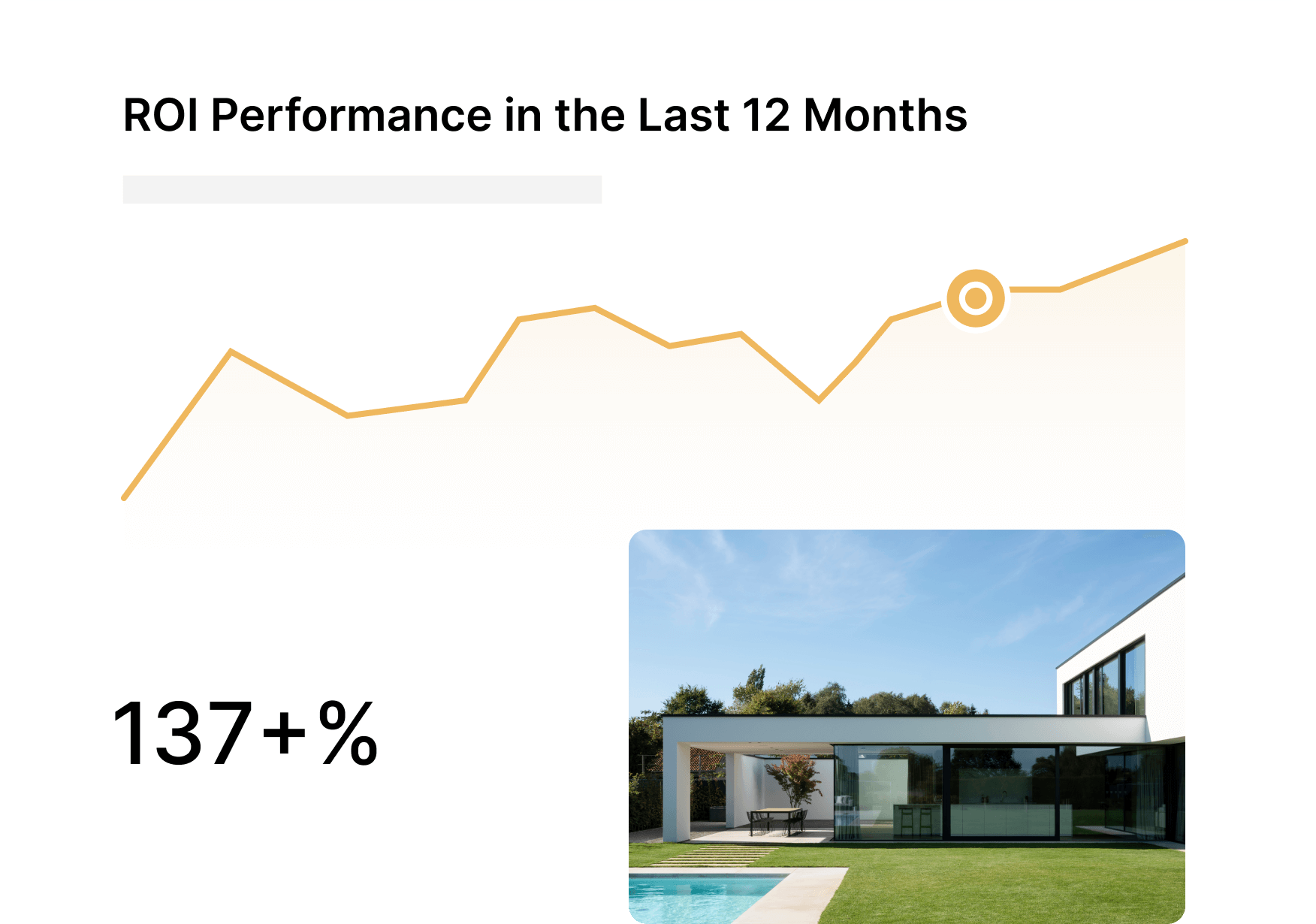A well-crafted real estate business plan is essential for agents and brokers who want to set clear goals, stand out in a competitive market, and attract clients. Research shows that businesses with formal plans are as much as 30% more likely to achieve long-term success, and entrepreneurs with a business plan are 260% more likely to launch.
The key to making your business plan work is updating it every year. Looking ahead this year, technology, particularly artificial intelligence (AI), is rapidly transforming the real estate industry, streamlining processes, enhancing customer experiences, and enabling data-driven decision-making. With these advancements reshaping the landscape, now is the perfect time to create or revisit your real estate business plan to ensure it leverages these innovations, stays competitive, and aligns with evolving market dynamics.
Find It Fast
Why you need a real estate business plan
As a strategic blueprint for any agent, team, or brokerage, a real estate business plan maps out key facets, critical milestones, company goals, and a business’s overall financial health. A plan needs a clear vision and roadmap for how the company will achieve its goals and grow within its specific market.
It is also essential for determining your identity in the luxury market and what you can offer clients. It helps you hone in on your ideal customer and allows you to assess the financial viability of your business easily. Think of your real estate business plan as a guide to your goals and a clear-cut strategy for how you can stand out from the competition, grow your business, and fulfill your overarching mission.
Additionally, for broker-owners, general business plans are pivotal in securing capital and compelling potential investors or partners. A great business plan can attract skilled employees and top-level talent, leading to further expansion and growth.

Your step-by-step guide to creating a real estate business plan
Each section below will guide you through the critical components of a strategic business plan, helping you stay on track, avoid common pitfalls, and adapt as your business evolves.
1. Executive summary: The foundation
The executive summary is the cornerstone of your real estate business plan. It should succinctly outline your business’s mission, services, and objectives. Although it appears first, write it last, so you can capture all key points accurately.
Key elements:
- Mission statement that defines your purpose
- Overview of services offered
- Brief snapshot of target market and financial goals
- Unique value proposition and brand identity
Examples of mission statements
- Compass: Our mission is to help everyone find their place in the world. Compass is building the first modern real estate platform, pairing the industry’s top talent with technology to make the search and sell experience intelligent and seamless.
- Sotheby’s Realty: Built on centuries of tradition and dedicated to innovation, the Sotheby’s International Realty brand artfully unites connoisseurs of life with their aspirations through a deeply connected global network of exceptional people.
Pro tip: Your executive summary should be the one part of your business plan you can recite from memory. There’s no fluff. Consider this your elevator pitch to sell your vision and convince others to join you on your mission.
2. Business description: Clarify your value and structure
Your business description outlines what makes your real estate business unique, detailing your structure, services, and market positioning.
Key elements:
- Legal structure (LLC, sole proprietorship, etc.)
- Deep dive into target market demographics and geography
- Summary of your unique selling proposition (USP)
Pro tip: Define a specific niche within the real estate market to differentiate yourself. Clarifying your unique value proposition will help target marketing efforts and attract your ideal clients.
Rewrite your brand strategy
Our free resources can help you define your personal brand, level up your marketing plan, and reach your target audience.

3. Market analysis: Research and competitive insights
A strong market analysis demonstrates your understanding of the local real estate landscape, enabling you to identify growth opportunities and competitive advantages.
Key elements:
- Market trends and size
- Competitor insights
- SWOT analysis (see below)
Specific questions to research
- What is the size and stability of your local market?
- Is the market currently on an upward or downward trajectory?
- What are the current demographics of the market?
- What segment of the market do you want to target?
- Is there a demand for a particular type of housing?
- Are there more sellers than buyers, or vice versa?
SWOT analysis

Conduct a detailed SWOT analysis by identifying and evaluating your business’s strengths, weaknesses, opportunities, and threats. Begin by listing internal strengths — such as industry expertise, strong local market knowledge, or a robust referral network — and weaknesses, like a limited social media presence or a lack of certain property expertise.
Next, focus on external factors: Look for opportunities such as emerging neighborhoods, demographic shifts, or economic trends that could drive demand. Finally, identify threats like rising competition, fluctuating interest rates, or market volatility. This analysis provides agents and brokers with a clear picture of their position, helping them make strategic decisions to leverage strengths, improve weaknesses, seize opportunities, and mitigate potential threats.
Questions to ask in your SWOT analysis
Strengths
- Is your brand recognizable?
- Do you have an active pipeline of new leads?
Weaknesses
- Do you lack consistent social media or online content?
- Is your brand relatively new or unrecognizable?
- Which lead-generation opportunities are you missing out on?
- Is your website engagement lacking?
Opportunities
- Has your team just branched out to a new area of real estate?
- Is market demand growing in your area?
- Have you uncovered a new source of referrals?
Threats
- Are there any new teams in your niche that offer a USP similar to yours?
- Are mortgage rates rising enough to slow down demand?

4. Marketing strategy: Reaching and engaging clients
Your marketing strategy is a central part of your real estate business plan. It should detail how you plan to attract, engage, and retain clients through multiple channels, including digital marketing and client referrals.
Key elements:
- Branding and positioning strategy
- Online presence (website, social media, SEO)
- Content and email marketing plans
- Referral programs and networking events
- Budget for each marketing channel
Pro tip: Clearly define your target audience and tailor your messaging to their preferences. Use social media, email marketing, and strategic content to connect with clients and showcase your listings and expertise.
5. Financial projections: Outline your monetary roadmap
As a barometer of economic health, a financial framework is a crucial aspect of your real estate business plan. It gives you a better idea of the valuation of your business, acts as a guide for your budget, and helps you set more realistic financial goals.
Key elements:
- Profit and loss statement: Also called an income statement or pro forma, this shows a company’s profitability (or lack thereof) over a certain length of time.
- Cash flow statement: This provides an overview of your actual cash position, demonstrating where your money is originating and where it’s going.
- Balance sheet: A balance sheet shows where you stand regarding assets, liabilities, and equity at a specific point in time.
- Operating budget: An operating budget is a detailed view of your income and expenses, usually over 12 months.
- Break-even analysis: This outlines the minimum sales necessary to cover all costs, offering further insight into the profitability question.
Pro tip: Regularly review and adjust your financial projections to keep your business on track, using forecasts and analyses to guide decisions, manage expenses, and allocate funds effectively.

6. Operations plan: Streamline your daily activities
The operations section of your real estate business plan details your daily processes and systems, helping you maintain efficiency and consistency.
Key elements:
- Office location
- Compliance protocols and client communication standards
- Technology
Deciding on office space
Deciding whether to lease office space or work remotely as a real estate agent or broker depends on your business model, goals, and personal preferences. Consider your client interaction needs — if you frequently meet with clients and want to provide a professional setting for discussions, a dedicated office can enhance credibility and create a controlled environment. However, if most of your client meetings occur at properties, coffee shops, or virtually, a home office or coworking space may suffice.
Your team structure also plays a role in the decision. Brokers managing a team may benefit from a physical office space to facilitate collaboration, training, and team building, while solo agents or small teams relying on digital tools like Zoom or Slack may find remote work more practical.
Finally, cost is a significant factor. Leasing or purchasing office space comes with expenses like rent, utilities, and maintenance, making it best suited for agents with a stable income or specific needs for a physical location. Remote work, on the other hand, can help reduce overhead costs, allowing you to allocate resources elsewhere in your business.
Compliance protocols and client communication standards
You must ensure that all your operations align with legal and regulatory requirements, protecting your business from fines, lawsuits, and damage to your reputation. These requirements include adhering to fair housing laws, properly managing client funds, and maintaining accurate transaction records.
Clear client communication standards are equally critical, as they foster trust and professionalism while ensuring a consistent experience for every client. Establishing guidelines for response times, the tone of communication, and sensitive information helps agents provide reliable service, minimize misunderstandings, and uphold the brokerage’s reputation.
Cutting-edge technology and AI
It’s crucial to regularly analyze and assess your use of technology. The emergence of cutting-edge tech, particularly AI, has the potential to completely transform how you manage listings, nurture leads, and interact with clients.
It may be tempting to hold off on implementing AI in your business until the technology is well established, but this could allow early adopters to make exponential leaps ahead of your business. Because the benefits of integrating AI will compound over time, those who resist taking advantage of the technology will struggle to catch up. Now is the time to explore innovative tools that can streamline your operations, improve decision-making, and elevate the client experience, ensuring that your business remains agile and ahead of the curve.
Pro tip: Real estate agents can use technology tools like CRM systems, automated email campaigns, and AI-powered chatbots to streamline repetitive tasks, such as lead follow-up and client communication. By automating these processes, agents save valuable time, allowing them to focus on building relationships and closing deals, ultimately increasing productivity and enhancing client satisfaction.
AI Lead Nurture
Luxury Presence’s artificial intelligence tool replies to inbound messages quickly and automatically, increasing lead reply rates to over 50%.

7. Team building and growth: Planning for expansion
As your business grows, building a team or expanding your current one may become essential if you want to increase your transaction volume while maintaining high service standards. A clear structure for team growth helps you prepare to scale smoothly.
Key elements:
- Organizational structure and key roles
- Defined responsibilities and hiring criteria
- Training and development strategies
- Long-term growth objectives
Steps to scale
Real estate professionals can effectively analyze their budget to plan for expansion by carefully evaluating their current financial position and forecasting future needs.
- Start by reviewing income streams, such as commission revenue, referral fees, and ancillary services, to identify consistent cash flow patterns.
- Next, assess existing expenses, including office space, marketing, technology, salaries, and transaction-related costs, to pinpoint areas for optimization or reallocation.
- It’s also essential to calculate the potential costs of expansion, such as hiring new agents, increasing marketing efforts, upgrading technology, or securing additional office space.
- Consider potential ROI by projecting how these investments could lead to increased leads, transactions, or client retention.
- Regularly monitoring key financial metrics, such as profit margins and operating costs, can help you make informed, data-driven decisions and ensure that expansion aligns with your long-term business goals.
Pro tip: Even if you’re a solo agent, plan ahead for growth. Define roles that might be needed in the future, and develop a strategy for hiring and onboarding. Clear role definitions will help ensure your team members align with your business vision and maintain high service quality.
8. Goals and milestones: Defining your path to success
Setting clear goals and milestones gives your business a sense of direction, helping you stay motivated and track progress. Goals should be achievable yet ambitious, pushing your business forward while remaining realistic.
Defining key performance indicators (KPIs) in your real estate business plan provides a tangible way to measure success and make data-driven decisions. Tracking performance helps you understand what’s working and where there’s room for improvement.
Pro tip: Regularly monitor these metrics to gauge the effectiveness of your marketing and operations. If you find certain strategies are performing exceptionally well, consider allocating more resources to those areas for higher returns.
Perfect your budget
Curious about your return on investment when it comes to advertising? Our ROI calculator makes it easy to predict and optimize your campaign performance.

Key elements:
- Short-term goals (3-6 months) for immediate focus
- Medium-term goals (1-2 years) for steady progress
- Long-term goals (3-5 years) for overall vision
- Key milestones to assess progress
Implementing the SMART method
Real estate agents should use the SMART checklist to ensure all of their goals are specific, measurable, achievable, relevant, and time-bound. For example, instead of a vague goal like “increase sales,” an agent could set a SMART goal such as “close five additional transactions per month within the next six months by expanding social media outreach.”
This approach ensures each goal is clearly defined (with the specificity of a monthly cadence), includes a quantifiable target (measurable in that they’re targeting five additional transactions), is within reach (achievable given the plan to increase social media inputs), aligns with broader business objectives (relevant to expanding one’s presence in the real estate market), and has a set deadline (time-bound to occur within the next six months).
Pro tip: Regularly review and adjust your goals based on key milestones and performance data. Schedule quarterly check-ins to assess your progress on short-term goals and make necessary adjustments, such as refining your strategies or setting new milestones. This routine review process keeps your goals aligned with market changes, client needs, and personal growth, ensuring your business continues moving forward effectively.
Common mistakes to avoid
When creating your real estate business plan, be mindful of common pitfalls that can hinder your success.
- Waiting for perfection: Don’t hold off on executing your business plan until it’s “perfect.” Start with a strong draft and refine it as your business grows and market insights evolve.
- Neglecting feedback: Having an outside perspective is valuable. Ask colleagues, mentors, or industry professionals to review your plan for any overlooked details or inconsistencies.
- Underutilizing the plan: Use your business plan as a guide for making strategic decisions, not just a document you set aside once the busy season starts. Regularly review it to stay aligned with your vision and goals.
- Failing to revisit: Periodically updating your business plan is essential to adapt to market changes, new business opportunities, and evolving client expectations. Update your plan every time there is a significant change to your business, making sure to address it at least once each year.
Luxury Presence is your ideal partner in building your real estate business
Crafting a strategic real estate business plan is a powerful start, but having the right tools and guidance can elevate your business to the next level. Luxury Presence provides a suite of digital tools designed specifically for real estate professionals, from beautifully designed websites and SEO services to targeted marketing strategies that help you reach your ideal audience.
Our team of experts is here to support every step of your journey, ensuring you have the resources and insights needed to stand out in a competitive market. Contact Luxury Presence to learn how our solutions can help you implement your real estate business plan effectively, build your brand, and drive growth.




